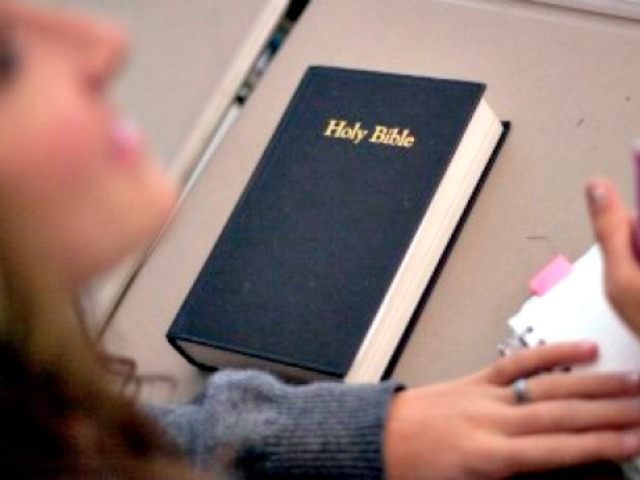Faith leaders from across the country and the Middle East held a press conference last week in Washington, DC, to release the results of a poll on American evangelicals’ support for Israel and to announce the launch of an organization to educate Christians about the biblical significance of the Israeli state today and in the future.
Chosen People Ministries — a Messianic Judaism organization — and best-selling author and evangelical Christian of Jewish heritage Joel Rosenberg commissioned the survey and shared its results with reporters at the National Press Club. Rosenberg and others on the panel spoke about the formation of the Alliance for the Peace of Jerusalem.
“Never have I been more committed to praying for the peace of Jerusalem, or more passionate about educating Christians about God’s love and plan for the people of the Middle East, or more dedicated to mobilizing Christians to pray for and work for the peace of Jerusalem,” Rosenberg said at the press conference.
The survey, done by LifeWay Research, revealed that the vast majority of American evangelicals support Israel, not for political reasons but because of deeply held religious beliefs that the Israeli state is a fulfillment God’s promise to his people.
“The survey makes clear that Evangelical Christians of all ages, ethnicities, income levels and regions of the country overwhelmingly believe that God has made binding promises to Abraham and his descendants; to make them a nation; to give them a land; and to make them a blessing to the rest of the world,” Rosenberg said.
“There are no better friends [to Israel] in the United States than Evangelicals,” Rosenberg said.
But the survey also revealed that younger evangelicals are not as strong in their support of Israel, specifically from a biblical perspective. Many Millennials part ways with older evangelicals in their opinions about — and their support of — Israel.
“Millennials are sending the church a sobering message,” Rosenberg said. “They’re not against Israel — not yet — not at all.”
“But the survey makes clear that many of them don’t understand Israel’s place in the biblical narrative and, thus, their support for Israel is 20 points lower than their parents or grandparents,” Rosenberg said.
Some highlights of the survey include:
- 80 percent of evangelicals “agree that God’s promise to Abraham and his descendants was for all time.”
- 69 percent of evangelicals “agree that the Jewish people have a historical right to the land of Israel.”
- 67 percent of evangelicals “have a positive perception of Israel.”
- 63 percent of evangelicals believe the Bible’s claim that “God gave the land of Israel to the Jewish people.”
- 66 percent of younger evangelicals are more likely to agree “Christians should do more to love and care for Palestinian people.”
- 42 percent of evangelicals “support the existence of the State of Israel but don’t feel the need to support everything Israel does.”
- 41 percent of 18- to 34-year-old evangelicals have “no strong views about the State of Israel.”
- 34 percent of younger evangelicals are more likely to agree that “the Christian church has fulfilled or replaced the nation of Israel.”
- Only 3 percent of evangelical Americans have visited Israel.
Mitch Glaser, president of Chosen People Ministries, said the survey offers evangelicals an “opportunity” and that that is the impetus for the formation of the Alliance for the Peace of Jerusalem.
“This generational uncertainty creates an opportunity to educate younger evangelicals on these issues beginning with a deeper study about what the Bible says about Israel and the Jewish people and the plan of God today and in the future,” Glaser said at the press conference.
In perhaps another prophetic moment, the press conference and organization launch took place ahead of the 70th anniversary of the United Nation’s resolution to create the Israeli state inside what was considered at the time Palestine and create an international governance of Jerusalem. The press conference also took place during the week that President Donald Trump said the U.S. would officially recognize Jerusalem as the capital of Israel.
“I have determined that it is time to officially recognize Jerusalem as the capital of Israel,” President Donald Trump said on Wednesday. “While previous presidents have made this a major campaign promise, they failed to deliver. Today, I am delivering.”
Trump later added: “Today, we finally acknowledge the obvious: that Jerusalem is Israel’s capital. This is nothing more or less than a recognition of reality. It is also the right thing to do. It’s something that has to be done.”
Trump also said that the U.S. would move the U.S. embassy to Jerusalem in accordance with the Jerusalem Embassy Act of 1995 and would make it a monument to peace.
While Rosenberg acknowledged the pushback on both the U.N.’s 1948 resolution and Trump’s decision makes this a “historic and controversial year,” he and other panelists said it is also a relevant time to reaffirm the U.S. commitment to Israel’s existence, peace, and security.
On a methodology note, the survey was limited to evangelicals who answered the following questions in the affirmative:
- The Bible is the highest authority for what I believe
- It is very important for me personally to encourage non-Christians to trust Jesus Christ as their Savior
- Jesus Christ’s death on the cross is the only sacrifice that could remove the penalty of my sin
- Only those who trust in Jesus Christ alone as their Savior receive God’s free gift of eternal salvation
LifeWay Research conducted the survey September 20-28, 2017, of 2,002 self-identified evangelical Christians.

COMMENTS
Please let us know if you're having issues with commenting.